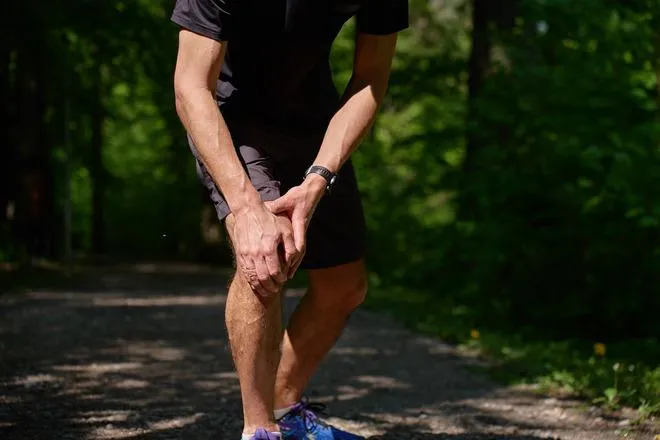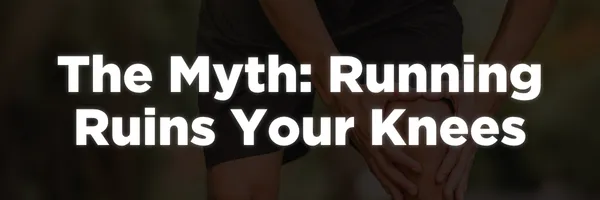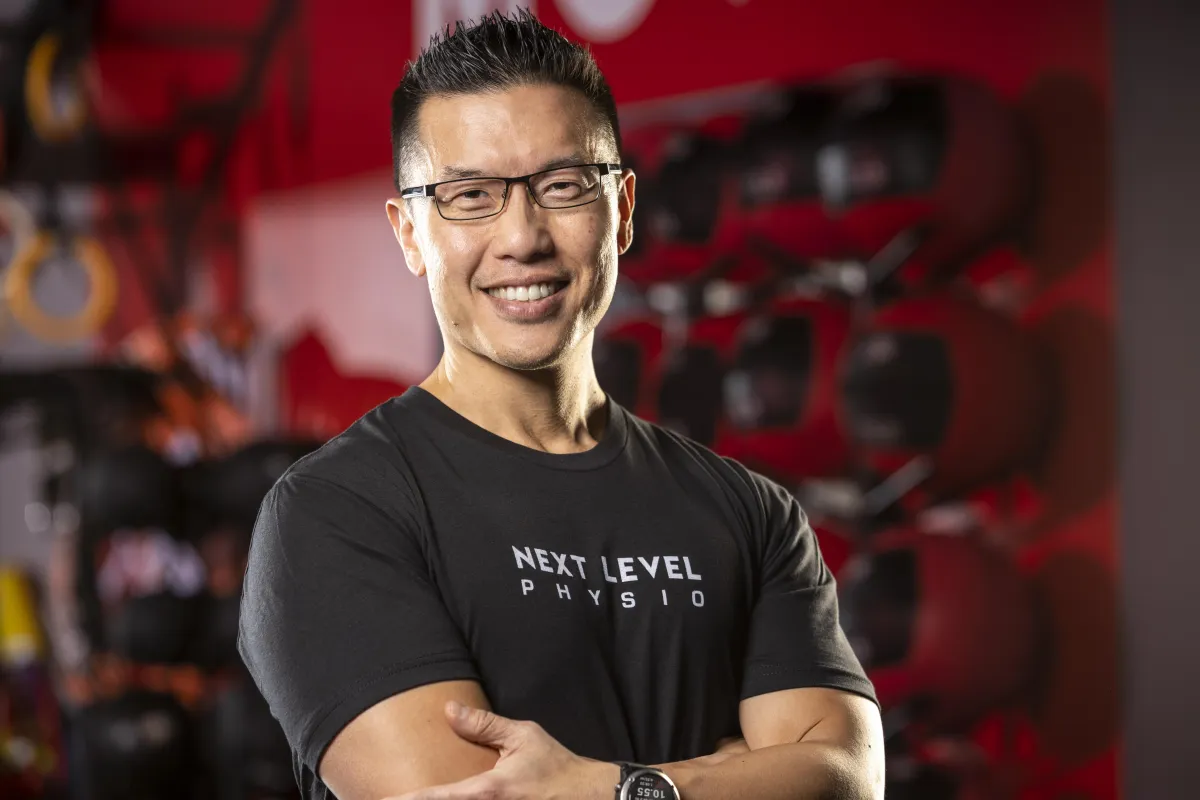
The Truth About Running and Your Joints: Why Your Knees and Hips Are Safer Than You Think
5 MINUTE READ

By: Dr. Jerry Yoo
CEO & Founder, Next Level Physio
Still worried that running will wreck your knees and lead to arthritis or surgery? The latest research proves it’s time to stop fearing the miles — and start enjoying their benefits.

If you’re a runner over 50, you’ve probably heard some version of this warning from a friend, family member, or even your doctor:
"Running is going to wear out your knees."
"You’ll need a hip replacement if you keep pounding the pavement."
"All that impact is destroying your joints."
At Next Level Physio, we hear this nearly every day — and it’s one of the most damaging myths keeping runners from doing what they love.
Here’s the good news: if you’re a recreational runner, the evidence shows you’re not ruining your joints. On the contrary, you’re likely protecting them — and giving yourself a head start on long-term health.
Let’s break down the facts.

For decades, conventional wisdom claimed that running was a fast track to osteoarthritis (OA) and joint replacement. After all, more impact must mean more wear and tear, right?
But that assumption was never backed by solid science.
In fact, one of the most respected studies on this topic followed a group of runners and non-runners for nearly 20 years — and the results were surprising. Not only did the runners have lower rates of severe OA and joint replacement, but they also maintained better physical function over time.
Here’s what they found:
Knee replacements: 0% in runners vs. 3.8% in non-runners
Severe OA: 2.2% in runners vs. 9.4% in non-runners
Cartilage damage: No evidence that running accelerated it
And it doesn’t stop there. Another massive 7-year study of more than 89,000 participants showed runners had a 40% lower risk of hip replacement compared to walkers.
Even more compelling: a meta-analysis of over 114,000 people revealed that recreational runners had a much lower prevalence of hip and knee OA (3.5%) compared to sedentary individuals (10.2%).

So how does running help rather than harm?
Here’s what the research suggests:
1. Running helps maintain a healthy weight — a key factor in preventing joint degeneration.
2. The impact of running stimulates cartilage to repair and adapt, rather than break down.
3. Runners tend to develop stronger muscles and connective tissues that support the joints, reducing stress on cartilage.
Of course, moderation is key. Elite and competitive runners logging very high volumes may see a slightly increased risk. But for most recreational runners, the protective benefits are clear.

You might be thinking: Sure, casual running is fine — but what about extreme distances? Or running after a surgery?
Surprisingly, even ultra-distance runners — covering thousands of kilometers — show no permanent cartilage damage. One fascinating study tracked runners in a 4,486-km transcontinental ultramarathon and found that their cartilage adapted over time and returned to baseline after the race.
And if you’ve already had a hip or knee replacement? Research shows many runners return to running safely, with no higher risk of needing revision surgery — and most report high satisfaction with their post-surgery running ability.

If you’re over 50, value your health, and love to run, you’re doing your body and your joints a huge favor. Running isn’t just safe — it’s one of the most effective ways to stay strong, mentally sharp, and connected to the activities and communities you care about.

Running won’t wreck your joints. The real danger is sitting still.
So if you love to run, keep going — wisely and consistently. The best time to start was years ago, but the next best time is today.
And if you need guidance to recover from an injury, train smarter, or protect your joints while running, check out our expert tips and videos on our YouTube channel and follow us on social media:
Next Level Physio
Dr. Jerry Yoo
Stay cool out there!
Sincerely,
Dr. Jerry Yoo
PS-> Tired of hip and knee pain even after conventional PT? Schedule a risk-free Total Runner's Assessment to learn more about how we help runners stay running!

About the Author
Dr. Jerry Yoo is the Founder of Next Level Physio.
He has worked with runners and triathletes for over 25 years, and is a clinical running research partner with Rutgers University. Dr. Jerry is an expert at helping runners and lifelong athletes over 40 get back to what they love to do.
He can be reached directly at
Post Address and Mail
Email: info@nlphysio.com
Address
1055 Darrington Drive
Cary, NC 27513
Address
4000 Wake Forest Rd Suite 112, Raleigh, NC 27609
Get In Touch
Hours
Mon - Fri: 9:00 am- 6:00 pm
Sat: By Appointment (8:00 am - 12:00 nn)
Sun: Closed
Phone Number:
919-650-4633

Facebook
Instagram
Youtube
Website